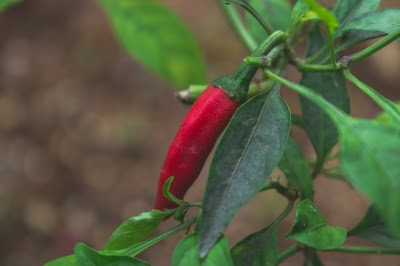Shrews Chowing on Hot Peppers?
Shrews are like rodents in many ways, but they are unrelated. Both can look for food and shelter in your house, and shrews smell worse than mice. But at least they eat insects and the like that you may not want around. It might be fun to feed them hot chili peppers and see what happens. It's been done.
Actually, they were not fed the peppers so much as found and ate them all by their lonesome. Researchers did what researchers do and checked out the critters. It turns out that there is a slight change in their DNA that makes them less sensitive to the hot spice. But those peppers are not in their usual environments.
Their habitat has a different kind of pepper that has a similar chemical, so the mutation has been called "beneficial" by universal common ancestor propagandists and hailed as evidence for evolution. Hail Darwin, blessed be! There's a big problem, however. Genetically, this is the loss of information, which is the opposite of evolution.
 |
| Credit: FreeDigitalPhotos / jeswin |
Their habitat has a different kind of pepper that has a similar chemical, so the mutation has been called "beneficial" by universal common ancestor propagandists and hailed as evidence for evolution. Hail Darwin, blessed be! There's a big problem, however. Genetically, this is the loss of information, which is the opposite of evolution.
A lot of us may like hot spicy foods, but we also know that they produce a burning sensation. So most animals avoid them—probably why plants have them in the first place (as well as to repel insect-borne fungal infections1). The burning sensation is due to a chemical called capsaicin, named after the Capsicum genus in which it was discovered. This stimulates a type of ion-channel receptor called TRPV1, producing similar sensations to burning or abrasion, and also causes the same types of inflammatory response.To read the rest of this short article, click on "Shrews eating peppers — NOT evolution in action". If y'all feel curious, here is an article on what you do not want in your chili cook-off from adventures in artificial selection: "The World's New Hottest Pepper Can Close Your Airways Immediately".